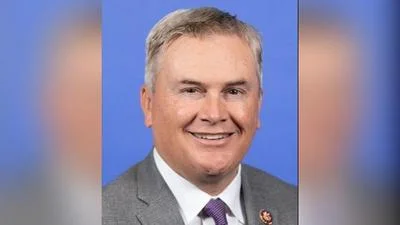Washington, D.C. - Today, the Select Subcommittee on the Coronavirus Crisis, chaired by Rep. James E. Clyburn, held a hearing with Federal Reserve (Fed) Chair Jerome H. Powell to assess the Fed’s emergency lending programs established in the early months of the coronavirus crisis, discuss the current state of the recovery, and examine the actions needed to ensure a strong, sustainable, and equitable economic future for all Americans.
The hearing highlighted the success of the American Rescue Plan and the Biden Administration’s vaccination efforts in putting the economy on track. Chairman Clyburn said in his opening statement:
“Congress and the Biden-Harris Administration have accelerated the recovery … The American Rescue Plan also delivered desperately needed financial assistance, which has been and will continue to be a lifeline for American families. The American Rescue Plan provided direct relief checks, extended unemployment, and increased healthcare access. And we have seen the results of that extraordinary action. Over the last four months, the economy has added over 1.6 million jobs, and new unemployment insurance claims have dropped significantly."
Fed Chair Powell echoed this success, saying in opening remarks:
“Since we last met, the economy has shown sustained improvement. Widespread vaccinations have joined unprecedented monetary and fiscal policy actions in providing strong support to the recovery. Indicators of economic activity and employment have continued to strengthen, and real GDP this year appears to be on track to post its fastest rate of increase in decades…. Household spending is rising at a rapid pace, boosted by the ongoing reopening of the economy, fiscal support, and accommodative financial conditions. The housing sector is strong, and business investment is increasing at a solid pace."
During his testimony, Chair Powell also addressed questions raised in the Select Subcommittee’s August 6, 2020 and May 7, 2021 letters regarding the Main Street Lending Program and the Municipal Liquidity Facility created as part of the Coronavirus Aid, Relief, and Economic Security (CARES) Act, discussed the nation’s economic outlook, and provided context for current inflation rates.
Strong Labor Market Predicted, Prosperous Economy Ahead
* When asked by Rep. Krishnamoorthi how the recovery would affect struggling workers, Chair Powell predicted a strong labor market with decreased unemployment and increased wages: “I really am hopeful-with the strength of labor demand, it really is remarkably strong-that over time, and not a lot of time, this will sort itself out and we’ll find ourselves in a very, very strong labor market with, you know, low unemployment, wages going up across the spectrum."
Continued Action Is Needed to Achieve a Broad, Inclusive Recovery
* In his opening statement, Chair Powell reiterated that the pandemic continues to disproportionately affect marginalized communities: “[D]espite progress, joblessness continues to fall disproportionately on lower-wage workers in the service sector and on African Americans and Hispanics. The Fed pursues monetary policy aimed at fostering a strong, stable economy that can improve economic outcomes for all Americans. Those who have historically been left behind stand the best chance of prospering in a strong economy with plentiful job opportunities."
* When asked by Chairman Clyburn how economic disparities affect the U.S. economy, Chair Powell emphasized that economic strength depends on a broad, inclusive recovery that reaches low-income workers: “There’s a growing realization, really across the political spectrum, that we need to achieve more inclusive prosperity. Real incomes at the lower end of the spectrum have stagnated relative to those at the top. Mobility across income spectrums has declined in the United States and now lags that of most other advanced economies. These things hold us back as an economy and as a country."
Continued Investments in the American People Will Drive Sustainable, Equitable Growth
* In response to a question from Rep. Raskin about the impact of investments in infrastructure on long-term growth, Chair Powell stated: “I think it’s basic economics that productivity and demographics are what drive longer term growth in a country, and one of the big ways to affect productivity is through investment, and that includes infrastructure, includes plants and equipment, and people, education, skills, things like that."
* When asked by Rep. Raskin about the importance of increasing access to broadband, Chair Powell explained that investments like those called for under the American Jobs Plan are important for future growth: “I would look at broadband … in the same way that prior generations looked at electricity. If kids don’t have access to the internet and to basically all the knowledge that’s available through that, they’re not going to be able to maximize their potential or realize their potential in this economy."
Current Inflation Rates Are Temporary and Expected to Decline
* In opening, Chair Powell discussed the pandemic’s effects on recent inflation rates: “[Inflation] reflects, in part, the very low readings from early in the pandemic falling out of the calculation; the pass-through of past increases in oil prices to consumer energy prices; the rebound in spending as the economy continues to reopen; and the exacerbating factor of supply bottlenecks, which have limited how quickly production in some sectors can respond in the near term. As these transitory supply effects abate, inflation is expected to drop back toward our longer-run goal."
* In response to questions from Rep. Maloney about inflation rates, Chair Powell explained: “There’s sort of a perfect storm of very strong demand and weak supply due to the reopening of the economy and various factors. … [T]hose are things that we would look to stop going up and ultimately to start to decline as these situations resolve themselves. They don’t speak to a broadly tight economy and to the kind of thing that has led to high inflation over time." He added, “[T]he incoming data are very much consistent with the view that these are factors that will wane over time and that inflation will then move down toward our goals. And we’ll be monitoring that carefully. Of course, we’re prepared to use our tools, as appropriate, if that turns out not to be the case, to guide inflation to 2%."









